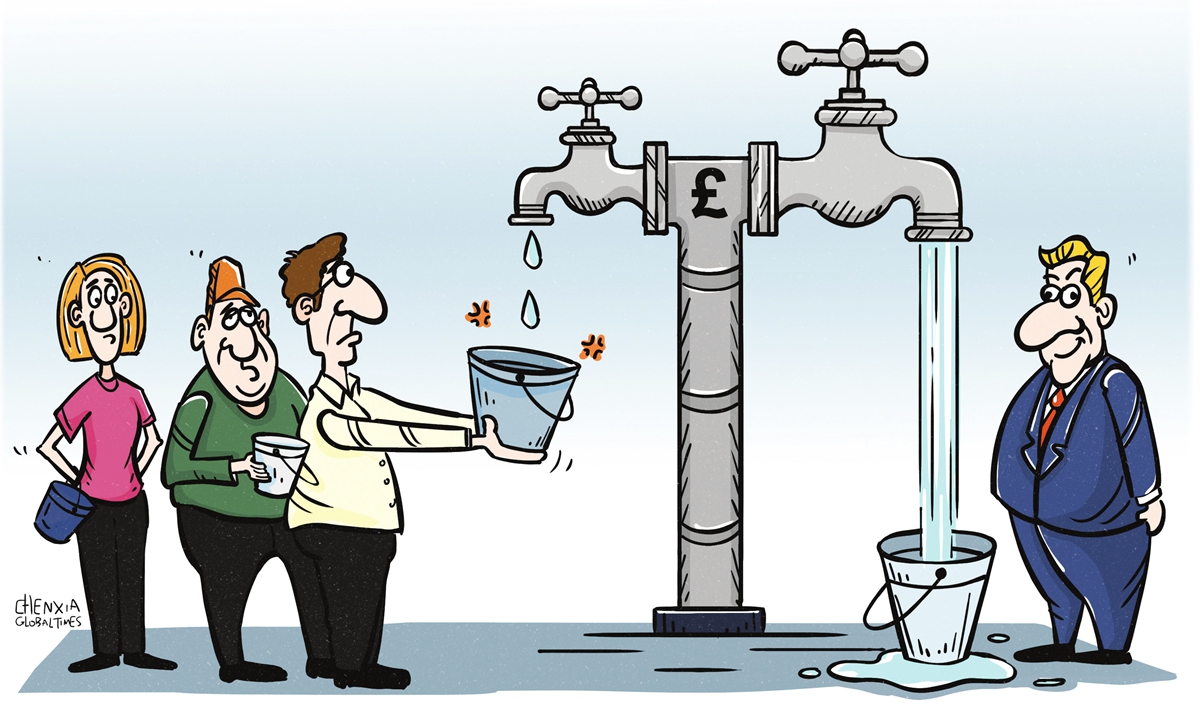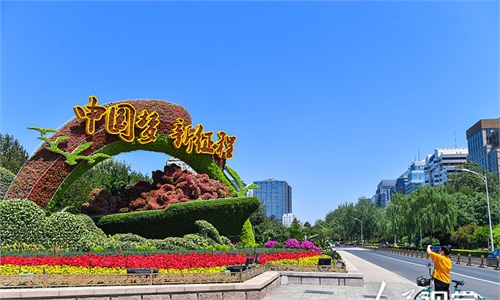With fairer distribution of wealth, Chinese people are richer than Europeans on average

Illustration: Chen Xia/Global Times
It should be no surprise to learn that the average person living in China today is wealthier than the average person living in Europe.
The annual Global Wealth Report by investment bank Credit Suisse, released earlier this month, has found the wealth of people in China has grown faster than anywhere else in the world, giving its citizens a median personal wealth of $26,752, compared to a European's $26,690.
The gap is not great, but it is significant because it reflects well on China's astonishing economic growth rate. China's gross domestic product (GDP) expanded at an average annual growth rate of 6.6 percent from 2013 to 2021. But the annual GDP growth rate in the European Union averaged 1.66 percent from 1996 to 2022, reports show.
It also draws attention to the political and economic systems operating in the two zones, and the contrasting philosophies that guide the governments there.
In China, the Communist Party operates socialism with Chinese characteristics and is actively pursuing the "common prosperity" of citizens. By sharp contrast, in Britain there is a new Conservative government which is pushing a fanatically extreme neoliberal dogma which will make most of the population poorer.
China has called on the country's richest individuals and companies to share their affluence more evenly, in the interests of social justice and fairness. In Britain, inequality seems a core tenet of Prime Minister Liz Truss' class war on the population.
Last week's UK mini-budget outrageously rewards the already-rich, in a deliberate strategy that many believe to transfer wealth from 99 percent of the population to the richest 1 percent. They called it trickle-down economics in the 1980s - now they call it Trussonomics - and it's never worked because at its heart lies the exploitation that underpins capitalism.
So while China is focused on achieving equality arising from economic growth, Truss is focused on division.
Zurich-based Credit Suisse calculated the median figure of each region in the world by drawing a line through the distribution of wealth, leaving on one side of the line half of the citizens who are worth less than the median, and on the other side those citizens who are worth more. A drawback to this method is that it can mask the yawning gap that exists in every country: at one end there are people in poverty and at the other there are the super-rich. So there are billionaires at one end, paupers at the other and medians in the middle.
It is a test of a country's political character how it tries to bridge this gulf.
In Britain, where 22 percent of the population (including almost a third of children and a fifth of the elderly) live in poverty, and where lower wage levels have stagnated, the government is putting all its faith in the trickle-down approach, despite it being widely discredited as an economic theory for many years.
China approaches the challenge from a different direction. Its track record in economic management has been strong for decades. More than 30 years ago, about 750 million Chinese lived in poverty. By 2016 it was 7.2 million, according to the World Bank.
According to Credit Suisse, China's economy is so strong that household wealth will achieve the same growth in five years, by 2026, that would take 14 years in the US. But China will also have created millionaires seven times faster than America in the same period. The number of individuals around the world with "ultra high net worth" - those worth more than $50 million - has also exploded, including in China, during the recovery from the pandemic. Billions of low- and middle-income people surviving on narrow margins, by contrast, lost their savings during the pandemic.
China's leadership has pledged a socialist system prioritizing the needs of all people, not only a select few. Now that China has the world's second-largest economy, the Party has urged businesses and tycoons to share their wealth with the rest of the country, and has required officials to examine a more equitable spread of housing, schooling and health care outside of the big cities.
This is in marked contrast to major companies in the West which are widely criticized for minimizing - or even avoiding - paying corporate taxes.
Socialism with Chinese characteristics can not only work - it can outperform Western capitalism, especially at a time when the world is facing an economic crisis.
The author is a journalist and lecturer living in Britain. opinion@globaltimes.com.cn

